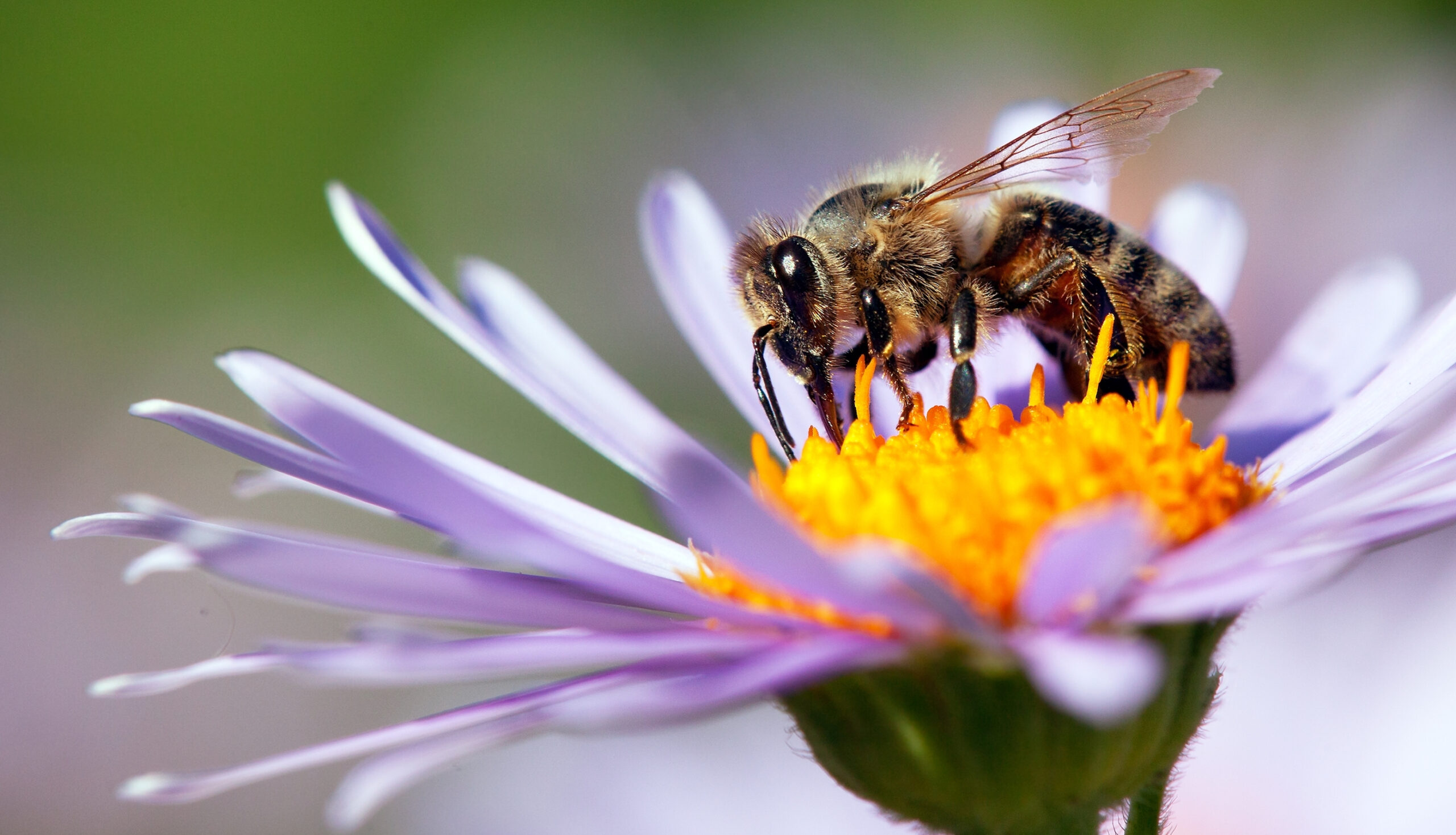Help the Bees in Your Neighborhood
- June 16, 2023
- By Alice Knisley Matthias

Have you heard the buzz? The bees need our help.
Did you know that we need to thank the bees for the food on our plates?
Bees are an important part of our ecosystem. There are thousands of species of plants that would disappear if we didn’t have bees busy at work with pollination. The process of pollination is how plant production happens. Pollen is a fine powder made by a flower or plant. A pollinator, like a bee, takes the pollen from one plant to another.
Pollinator Week is coming up from June 19-25 and to help raise awareness for the amazing work our busy pollinator friends do, Forager Project and nonprofit Pollinator Partnership have created a special Pollinator Kit (estimated retail value $25) that makes it easy to support pollinator populations in your community. It contains seeds based on your specific region, a guidebook about how to attract pollinators, resources on how to create a pollinator-friendly garden, and Forager Project samples of course.
Your kit to help the bees in your neighborhood will have seeds based on your specific region, a guidebook about how to attract pollinators and resources to create a pollinator-friendly garden.
Kits are free while supplies last for Pollinator Week. They come with everything you need to help pollinators in your area be healthy and do their work. You provide the soil and the sun!
Plant your kit and you will soon have native plants with bright-colored flowers! Head on over to the site here and find out how to get your kit for Pollinator Week and help the bees in your neighborhood!
Kits are free while supplies last for Pollinator Week. They come with everything you need to help pollinators in your area be healthy and do their work.
Former First Lady Michelle Obama planted the first pollinator garden at The White House on the South Lawn. Mrs. Obama explained to visiting students at an event in the garden that the plants help bees, butterflies and birds. “They pollinate the plants, they help the plant grow. They’re dying because of disease. We don’t even know why some beehives are just totally disappearing.”
We can help the bees!
Author Jodi Helmer, writes about food and the environment and talks about how important pollinators are in our world in her book titled, Protecting Pollinators.
She shares these important tips:
- We depend on bees for our food. Bees are important pollinators that pollinate up to one-third of our foods from apples and almonds to zucchini. Without bees, we’d have less diversity in our ecosystem and on our plates.
- Bees are pollinators, which means they pick up pollen from one plant and transfer it to another, which allows plants to reproduce.
- Kids can play an important role in pollinator protection.
- Plant flowers and vegetables; the pollen and nectar from these plants are important food sources for all kinds of pollinators, including bees.
- Provide a shallow dish of water where bees can drink. Remember, bees can’t swim so the water needs to be shallow. You can also put a few rocks in a deeper bowl so bees have a place to perch while quenching their thirst.
- Don’t use chemicals in the garden. Bees are eating pollen and nectar from the plants; spraying those plants with chemicals means that bees are eating the chemicals, too, and that can lead to illness or death.
- “Bee” friendly. When bees are buzzing about, don’t swat at them. You can walk away if a bee is too close.
Happy Pollinator Week!